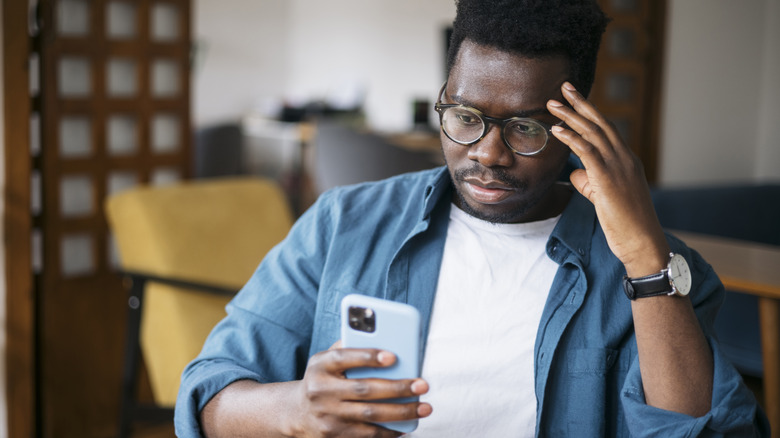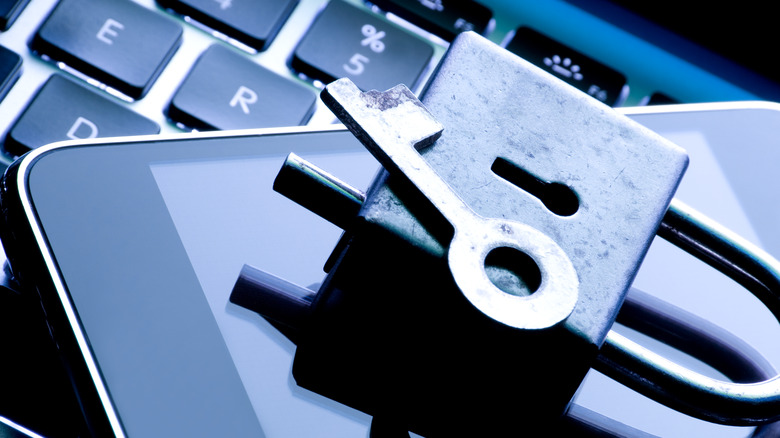Common Warning Signs That Your iPhone Might Have A Virus
It is considered extremely rare for Apple products to catch any sort of virus. That's no accident; it's entirely by design. With a Mac computer, for example, security is built-in. "To safely support internet downloading, MacOS layers additional controls," according to Apple. "First, by default in macOS 10.15 or later, all Mac apps need to be notarized by Apple to launch. This requirement helps to ensure that these apps are free of known malware, without requiring that the apps be provided through the App Store."
In the same way, iPhones derive their apps directly from the official App Store. As a result, it is highly unlikely that you can download anything malicious to your smartphone due to the company's stringent sandboxing process. That means anytime you download a new app, its code is automatically tested in a separate environment to be sure of its veracity before opening it up to your phone's greater ecosystem. Still, vulnerabilities like jailbreaking leave your iPhone susceptible to viruses in rare cases. Regardless of the slim chances, knowing the signs of a virus on your device is worthwhile.
Signs your iPhone has a virus
As stated before, it is incredibly unlikely your iPhone will fall victim to a virus; however, you may observe some of these signs if it does. First, if you suddenly find your battery draining at speeds much faster than usual, it may mean the presence of a virus or malware running in the background of your phone. Also, when your iPhone is in tip-top shape, it runs quickly, but a virus may force it to slow down dramatically, increasing lag time or unresponsiveness.
If apps that once worked well are crashing frequently and don't improve after closing or reinstalling them, it could be from virus interference. Perhaps the most significant indicator of a malicious actor or threat actor is that of unauthorized changes or charges on your iPhone. If anything is amiss with your subscriptions, app-based payment or banked services, or Wallet app, it's likely due to a virus or a hack.
What you can do to stop an iPhone virus
There isn't much an iPhone user can or should do about iPhone viruses, shy of avoiding jailbreaking the phone. Downloading virus protection apps like McAfee or Avast are redundant with Apple's internal processes. Moreover, whenever major vulnerabilities are exploited in events like Pegasus attacks, typically, Apple issues a patch that closes the loop on issues for end-users. One practical piece of advice to consider would be to keep your device up to date with automatic software updates. This will protect your phone with the latest security implementations.
Moreover, viruses don't come from using the native iPhone browser, Safari, but you should be wary of websites you visit from it. Vulnerabilities may also come from using other browsers like Chrome. Another thing to consider is using VPN services (Virtual Private Network). It provides a private gateway for your personal information, making it less vulnerable to intruders.
Ultimately, the chances of finding your iPhone infected by any malicious actor remain incredibly low. It's one of the perks of buying an Apple product. If you find yourself among the unlucky few to catch a virus, consider contacting Apple Support as soon as possible.


